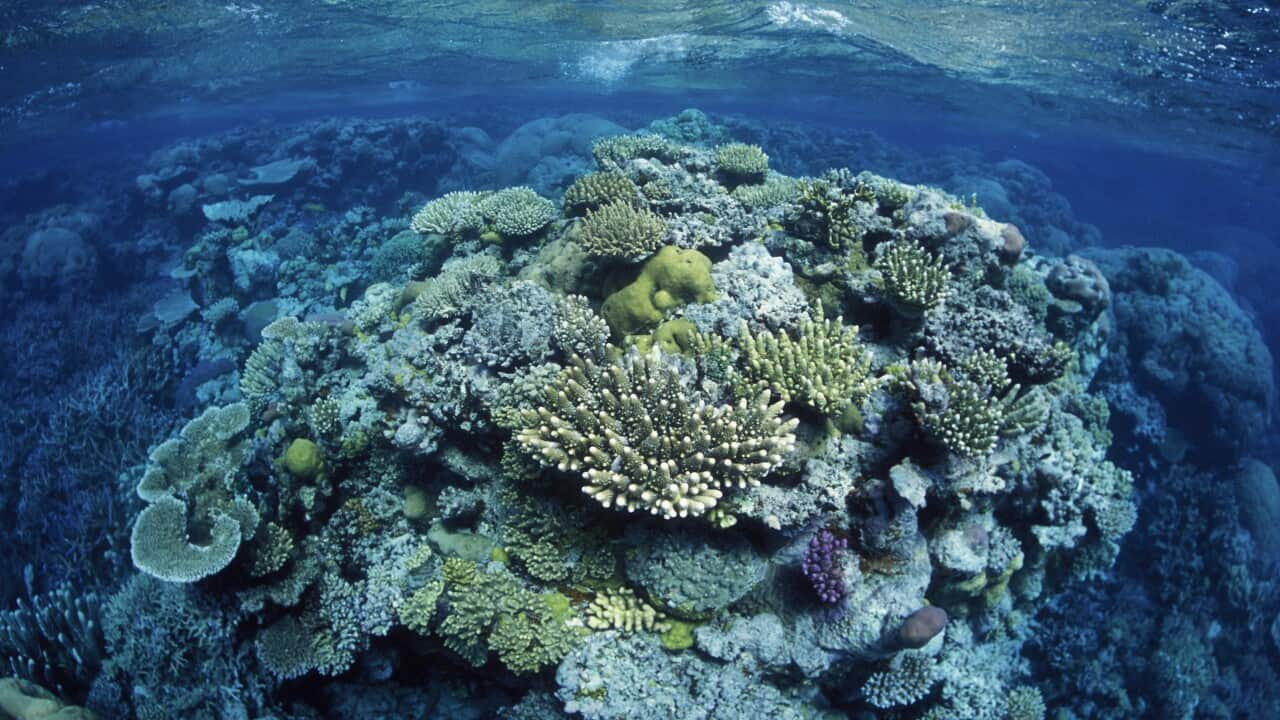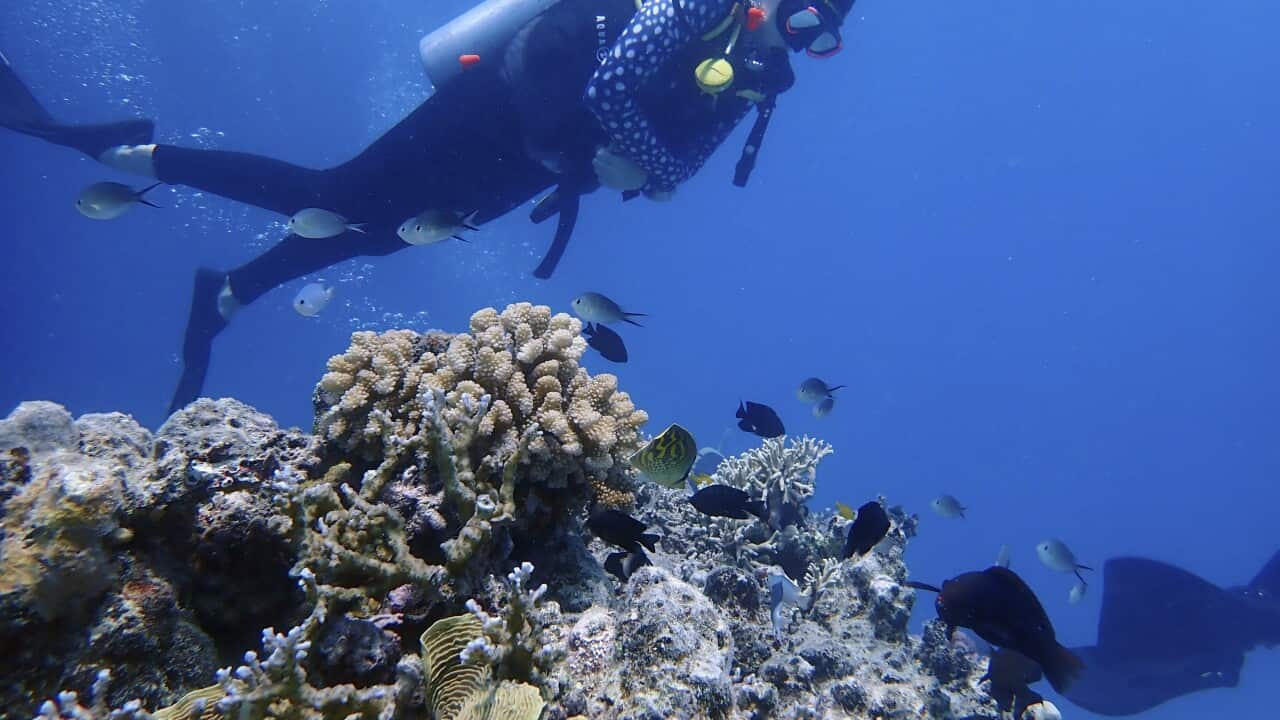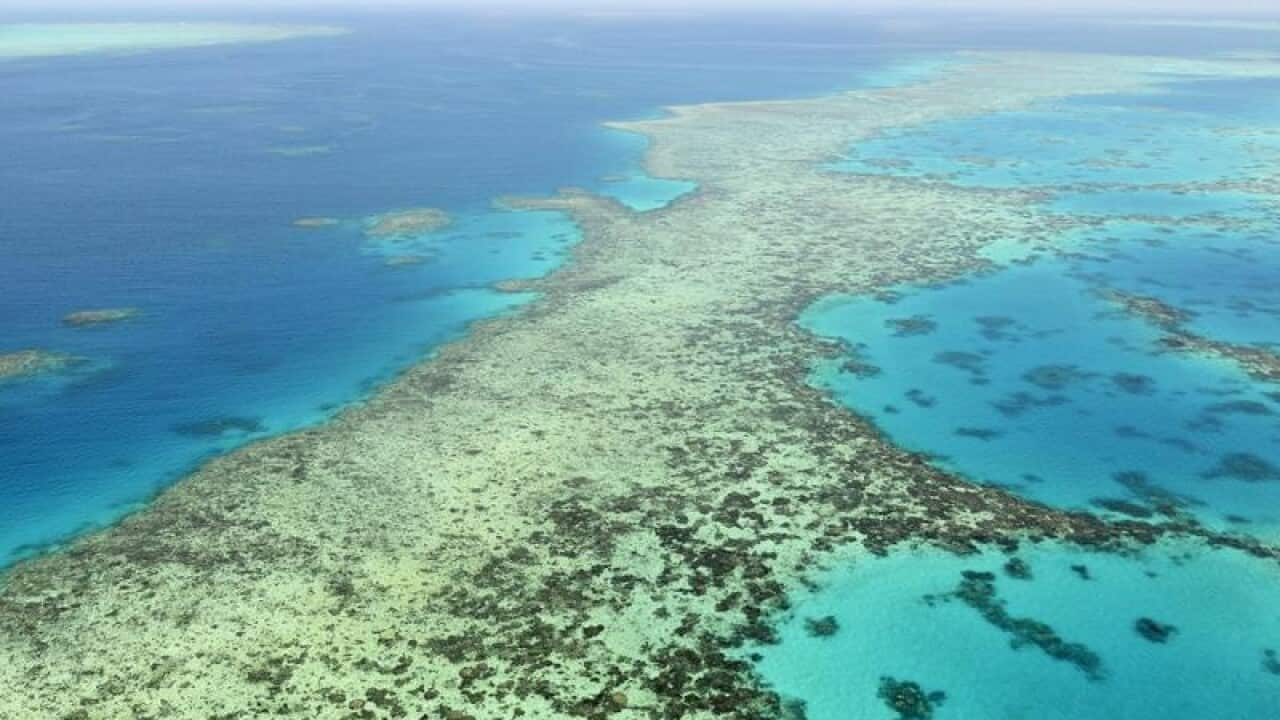The Great Barrier Reef could be destroyed by annual bleaching events if carbon emissions aren't drastically cut within this decade, a new report says.
The Climate Council says, if emissions continue at their current pace, coral bleaching could occur every two years by 2034 and annually by 2044.
The 2300km World Heritage Site could not survive under those conditions, the report said.
"These conditions would effectively destroy the Reef, and most shallow water tropical reefs worldwide," the Climate Council report said on Monday
"Under a high emissions scenario, marine heatwaves are projected to become 50 times more frequent by the end of the century and many parts of the ocean could reach a near-permanent marine heatwave state."
The report said targeting net zero by 2050 wouldn't be enough to slow the rising ocean temperatures to protect reefs.
Cutting emissions by between 50-75 per cent this decade, the Climate Council said, was the only way to ensure the reef survives.
"As a first step, the federal government should match key allies and commit to halving emissions this decade," the report said.
The Climate Council's comments come just days after federal authorities on Friday said another potential bleaching event had been detected on the reef.
"It is widespread but variable, across multiple regions, ranging in impact from minor to severe," the Great Barrier Reef Marine Park Authority said in a statement.
If confirmed, it would be the sixth mass bleaching event and fourth in six years.
Scientists warned greenhouse gas emissions are pushing up ocean temperatures, which in turn caused mass bleaching events on the reef in 1998, 2002, 2016, 2017 and 2020.
Earlier this month, a major report by the Intergovernmental Panel on Climate Change said the reef was in crisis and facing the prospect of irreversible damage.
It warned a high-emissions future could see the reef bleaching twice every decade from 2035, and every year after 2044.
The bleaching and new report coincide with a UN monitoring mission arriving on Tuesday, at Australia's request, to check on the health of the ecosystem.
UNESCO's Reactive Monitoring mission will spend nine days assessing the Morrison government's Reef 2050 Long-term Sustainability Plan.
It aims "to ensure that it addresses the threats posed to the Great Barrier Reef by climate change and other factors, and determines a pathway for accelerated action in other areas affecting the condition of this iconic natural site", a UNESCO statement said last week.
The monitors will provide a report to the World Heritage Committee to examine in June to decide whether to list the Great Barrier Reef as a World Heritage in Danger site from 2023.











